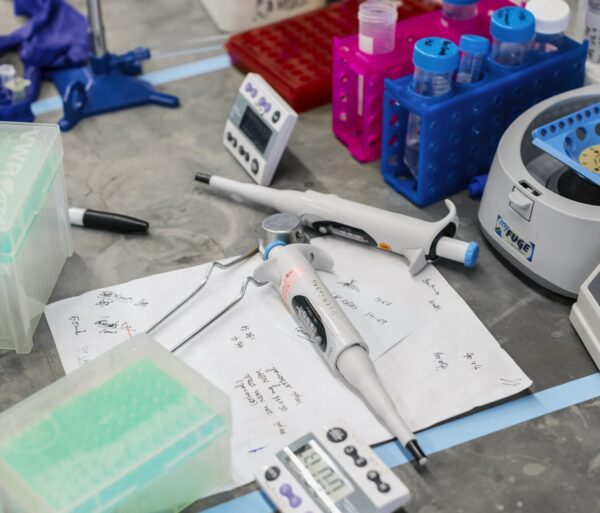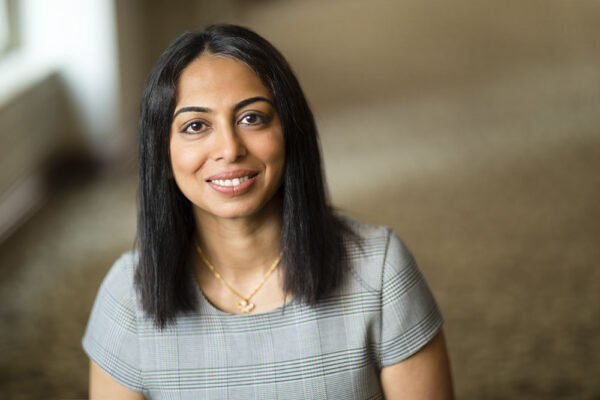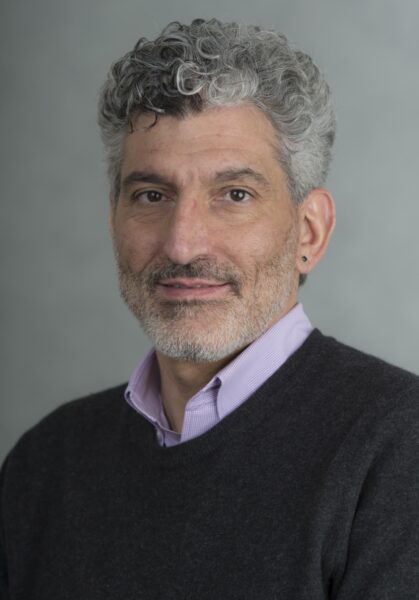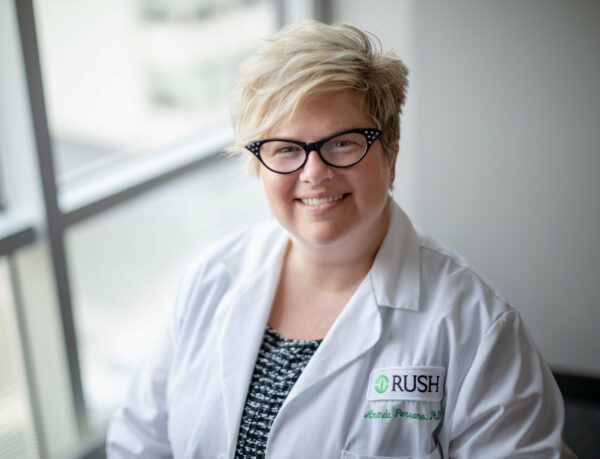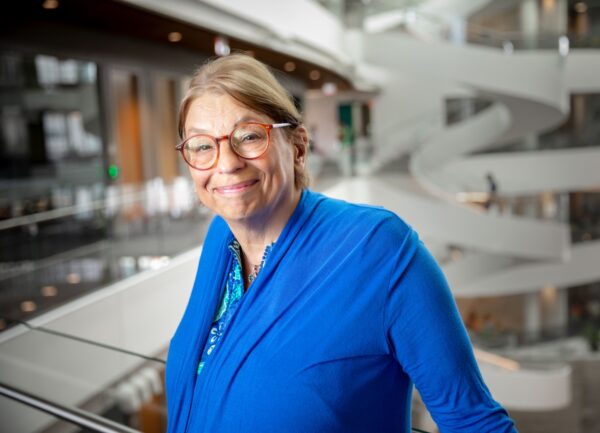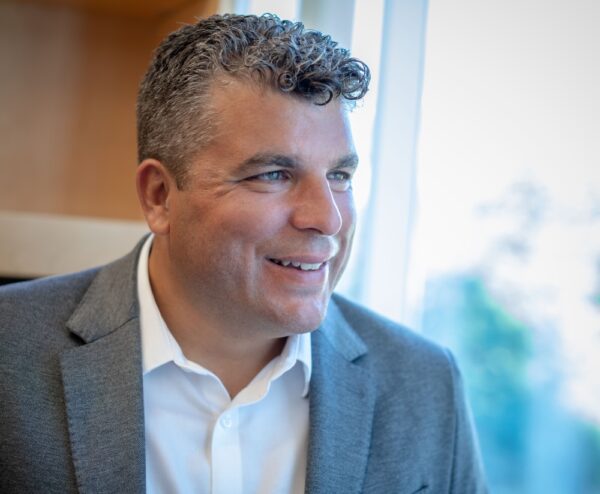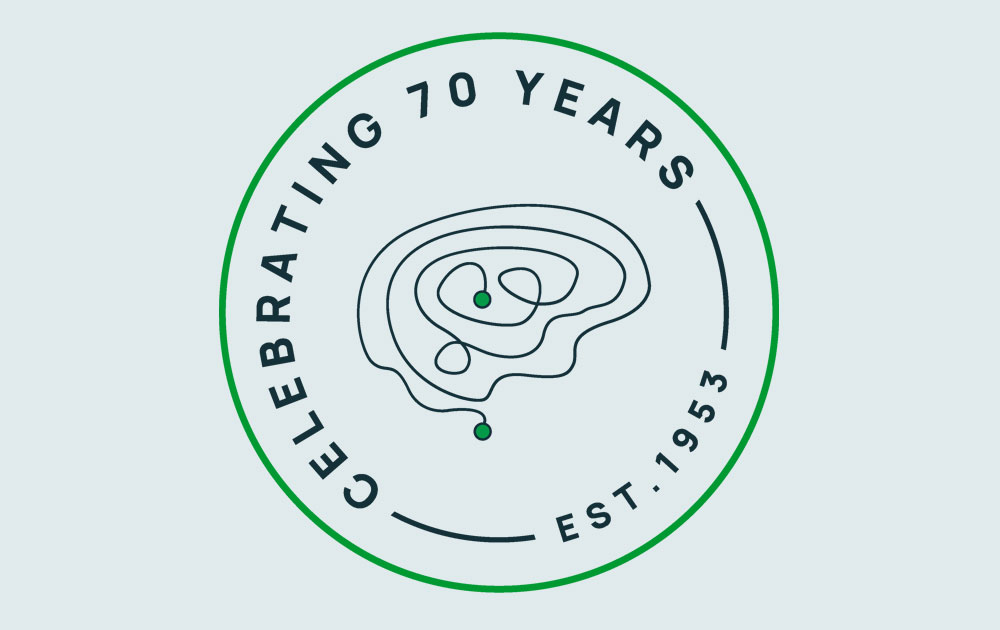
2025 Discovery Event
The Discovery Event is an important evening that plays a pivotal role in the Brain Research Foundation’s ability to fulfill its mission to fund the nation’s most innovative neuroscience. Event proceeds support top researchers as they strive to find the treatment and eventual cures of neurological disorders and diseases that affect so many children and adults.
Our annual 2025 Discovery Event panel discussion will take place on Tuesday, November 4th at 6:00 p.m. CST.
BRF Programs
See the impact of brain research funding firsthand. Explore our programs and read about upcoming events focused on various aspects of brain research.
2026 Seed Grant Program
The 2026 BRF Seed Grant Letter of Intent round opens on Thursday, September 5, 2025. This $80,000 two-year grant program provides start-up funding for neuroscience research, supporting investigations into all areas of the brain, including cognitive, neurodegenerative, learning and development, and disease-related studies.
To be eligible, the Principal Investigator (PI) must be a full-time assistant or associate professor working in neuroscience. Please note that only institutions that have received a direct invitation via email from BRF are eligible to apply. For more information, please visit our Seed Grants page.
Neuroscience Day
From 1999 to 2018, Brain Research Foundation hosted an Annual Neuroscience Day. This unique forum provided members of the Chicago-area neuroscience community with the opportunity to share interests in an informal setting. The program structure featured presentations by graduate students and postdoctoral fellows, stimulating scientific interactions between universities.
Neuroscience Day provided BRF with the ability to foster stronger professional relationships amongst the local neuroscience community and effectively provide an open space for discussion and knowledge-sharing. BRF exists to accelerate discoveries of the human brain by funding pioneering neuroscience research.
The Science of Sex and Attraction
Being at the forefront of neuroscience research allows the Brain Research Foundation to host a series of lectures discussing the most innovative and breakthrough discoveries in neuroscience.
The Brain Research Foundation proudly partnered with Science is Sexy to unravel the mysteries of love, sex, identity, and the brain.
Who do you love, and how? Northwestern University’s Michael Bailey, Ph.D. has been asking this question for over a decade, and he told us about his research on sexual arousal, sexual orientation, and the genetics of who we are sexually. Why some people are attracted to men, others to women, and others to both men and women is a fascinating and as yet unanswered question. Understanding the origins and development of sexuality and sexual orientation can help us understand the origins and development of sex differences, and adds a scientific perspective to questions that are deeply rooted in our identity as human beings. Michael discussed his fascinating research to better understand the biological aspects of sexual orientation, how our biology intersects with our behavior as sexual beings, and his brain research on sexual arousal and response in people of various sexual orientations. Guests joined us for a thought-provoking evening of scientific discovery from one of Chicago’s leading researchers.
Our special guests and friends The Think Tank, a neuroscience lab on wheels at The University of Chicago, allowed guests to do their own brain-bending experiments, and play our scientific trivia to win scientific swag. Scientific valentines were on hand to exchange as we unraveled the molecular mysteries behind love, lust, and who we are.
Proper Helmet Fitting
The Brain Research Foundation (BRF) and Prairie State Cycling Series partnered in the 2013 cycling series in the Chicago area to promote key educational initiatives around brain health. The series was in eight locations throughout the area over two weeks in July and drew substantial crowds of spectators and participants.
BRF’s support of the cycling series aligns with our educational initiative relating to delaying cognitive decline. “Sustaining an exercise regimen from young adulthood through our latter years is perhaps the most simple and powerful tool we have to fend off cognitive decline, like Alzheimer’s, that debilitate an aging population,” states Terre A. Constantine, Ph.D., Executive Director of BRF, “Biking is an activity that people of all ages can do so it is a natural fit for BRF to participate in the series. We were very pleased to learn how passionate Prairie State Cycling Series leadership is about promoting these issues.”
In addition to our exercise education efforts, BRF promoted proper helmet use among series attendees through demonstrations by BRF staff, offered proper helmet fitting, and provided information about the important research that BRF funds. “These competitive men and women racing around the course in their helmets are terrific role models,” continued Constantine. “And yes, for those of us recreational riders, falls do happen while ‘just going to the corner or up the street’ in our neighborhoods, but concussions can be prevented and head injuries minimized. With the help of Prairie State Cycling Series we will reinforce that message during the series.”
“We are proud to partner with the BRF to promote a healthy lifestyle and keep our kids safe and concussion-free,” states Marco Colbert, Executive Director of Prairie State Cycling Series. “Coaches teach helmet safety to football and baseball players every season, yet our children are riding their bikes, often unprotected, on concrete! Together we can help change that and bring those messages to our bike race fans.”
Properly Fit Helmets Save Lives – Protect your head and brain every time you ride. Bicycle helmets only provide safety when they are properly fitted, adjusted, and worn. A bicycle crash can happen at any time. A properly fitted bicycle helmet reduces the risk of head injury by as much as 85 percent and the risk of brain injury by as much as 88 percent. Helmets are the single most effective way to prevent head injuries resulting from bicycle crashes. Wearing a helmet each ride can encourage the same smart behavior in others.
Follow the instructions on this flyer and learn how to properly fit a bicycle helmet.
BRF Grant to Study Concussive Events Among Grade School Children
In 2012, BRF gave a $30,000 grant to fund research at the Institute for Sports Medicine at Ann & Robert H. Lurie Children’s Hospital of Chicago. The grant funded research that aims to improve pediatricians’ ability to evaluate and manage sports-related concussive injuries among young children, and guide future research regarding the diagnosis, treatment and long term effects of these events.
Although clinical tools to measure concussive recovery are available, their efficacy is based on research with college and high school aged athletes. Post concussion cognitive tests have not been validated for use with grade school athletes. “Data is vitally needed to identify valid and reliable clinical tools pediatricians can use to measure concussive recovery in younger children,” states Terre Constantine, Ph.D., Executive Director of the Foundation. “In time, this funding will help advance clinical practices when pediatricians face these injuries among younger patients. Through our work as an advocate of education around the long term effects of traumatic brain injury (TBI) we have identified the gap in clinical tools for sports-related head injuries in grade school children.”
Cynthia LaBella, M.D. led the research team. At the time, Dr. LaBella was the Medical Director for the Institute for Sports Medicine at Ann & Robert H. Lurie Children’s Hospital of Chicago and Associate Professor of pediatrics at Northwestern University’s Feinberg School of Medicine. “As one of a small number of academic pediatric sports medicine departments in the country, we are intimately aware of the unique needs of children and adolescents suffering sports-related concussions,” stated Dr. LaBella. “We believe that BRF’s grant will help mitigate some of the challenges pediatricians encounter while evaluating and managing concussions in this young population.”
Impact on Sports: Local Initiative to Better Concussion Protocols
A previous BRF study on the awareness of sports-related head injuries indicated that coaches, trainers, and physicians who steward young athletes are not adequately educated about concussions. To contribute to the solution in the local community, BRF provided a $50,000 grant designed to improve the Chicago Public Schools’ (CPS) ability to respond to sports-related head injuries. The grant was awarded to Sports Legacy Institute which works with CPS to conduct education seminars throughout the city and support clinics where student athletes who suffered a head injury can be assessed by a trained medical professional. “This educational grant supports efforts to reduce risks associated with sports-related head injuries by providing funding for clinics that will treat injured CPS student athletes,” stated BRF executive director Terre Constantine.
When Chicago Alderman Ed Burke attended the 2010 BRF Discovery Dinner, he learned of the national movement to adopt new laws related to the care of young athletes with head injuries. The dinner included a panel focused on sports-related brain injuries among youth. Alderman Burke went to work right away with his colleague Alderman Latasha Thomas to move the City of Chicago forward in adopting an ordinance to do the same.
Passed by the city council in January 2011, the ordinance requires any Chicago student-athlete who exhibits signs, symptoms, or behaviors associated with a concussion be removed from a game or practice and barred from returning without written medical clearance. Schools not enforcing the ordinance risk losing their water and sewage exemption under the ordinance.In discussing the ordinance, Alderman Burke said, “The most important part of this is public education…to persuade parents that putting their kids back in the game after a head injury is a recipe for disaster. We understand the competitive nature of sports and how parents want their children to be competitive. But, there has to be some caution.”
To learn more about the panel discussion, check out the video here.
Ways to Give
Your generous donations have funded seven decades of progress in brain science. Your dedication and steadfast support for BRF’s innovative approach have enabled countless neuroscience breakthroughs. We are grateful for your passion and commitment.

Bequests
To make the process of legacy giving easy, BRF has partnered with FreeWill to provide our community with a free estate planning tool. FreeWill’s secure online tool guides you through writing a legally valid will or trust in about 20 minutes. As you write your will, FreeWill presents you with the opportunity to make a planned gift to BRF on your terms. Write your free will today!.
If you have already chosen to invlude the BRF in your estate plans, please fill out this form, so we can update our records and thank you for making our mission a part of your legacy!

Non-probate assets
Do you have an IRA, 401(k), life insurance policy, or any other asset that your will does not cover? These are called non-probate assets and it’s important that you set your beneficiaries for them separately. You can even use FreeWill to designate BRF as a beneficiary of these assets to advance our innovation for years to come. FreeWill also provides easy-to-follow instructions on how to update the institutions where your non-probate assets are held if you need to set or change designations from time to time. Get started naming your beneficiaries with FreeWill.

IRA Giving
If you are 70.5 or older, IRA gifts are a powerful way to support BRF, and reduce your future tax burden. If you are subject to Required Minimum Distributions from your IRA, your gift can be an impactful way to meet your RMD, without counting toward your taxable income for the year. Using FreeWill’s secure online tool, you can fill out the forms from your IRA custodian in just a few minutes, or print out the forms and fill them out offline—our tax information will already appear and any other instructions will be clear and easy to follow.

Gifts of Stock
When you donate your appreciated stock directly to BRF, there’s no capital gains tax to pay. As a result, your act of generosity goes even further as we can immediately put the gift to work. This online tool makes transferring stocks simple. It can help you identify the correct transfer form, help you fill out the necessary fields, and provide clear instructions for submitting the form to your brokerage. Or, if your brokerage permits, fill out the forms online to complete the gift electronically. Learn more and give stock today!
Power in Numbers
For every dollar BRF awards, our grantees have secured, on average, $30 in future funding from other grant programs to continue their research.
Since 1981, our grant programs have supported 686 scientists in their pursuit of furthering brain research.
BRF has provided more than $51 million toward neuroscience research.
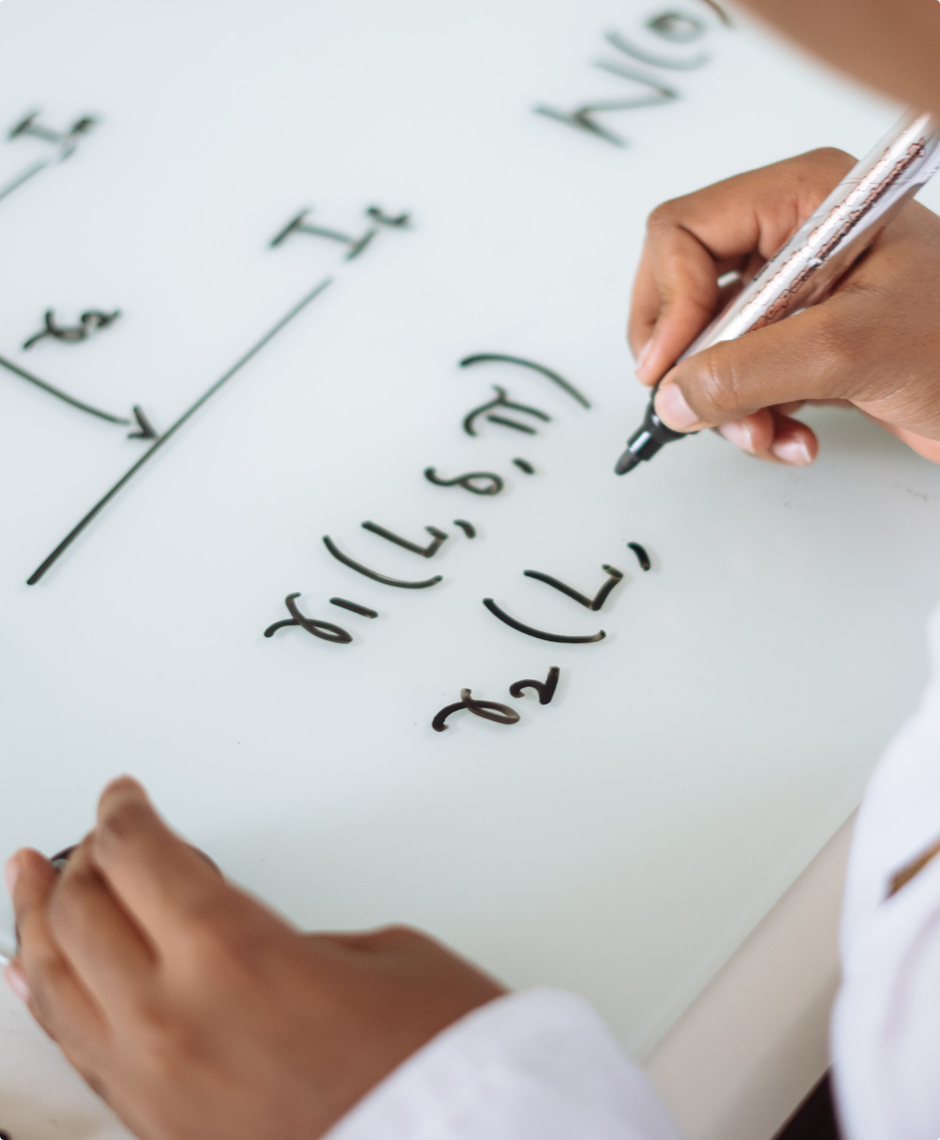
Support a Research Grant
How can I find clinical trials related to neuroscience?
You can search for neuroscience-related clinical trials using public registries and research platforms that list ongoing studies. A good place to start is ClinicalTrials.gov, where you can enter keywords like Alzheimer’s, Parkinson’s, brain injury, or neurodegenerative and filter by location, phase, or condition. Other resources include research hospital or university trial listings, and contacting specialist clinics or neurologists who may know about local or investigator-initiated studies. Always discuss any trial you’re considering with your health care provider.
Are there any newsletters that focus on neuroscience breakthroughs?
By subscribing to the Brain Research Foundation’s monthly newsletter, which highlights recent research, funding news, and advances in brain science. In addition, many large research institutions and organizations (such as NIH and disease-specific foundations) offer their own newsletters covering neuroscience news and discoveries if you’re looking for even broader coverage.
Donate Now
Donate Now Help scientists advance brain research to discover new treatments and work toward eventual cures. You can also choose to contribute a small amount each month, providing steady support that helps sustain ongoing studies. Every donation, whether one-time or recurring, plays an important role in funding the nation’s most impactful brain research.
Brain Research Foundation is a 501c-3 organization. Our Tax ID number is 36-2477928.


